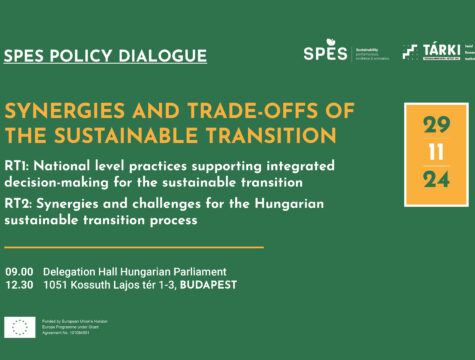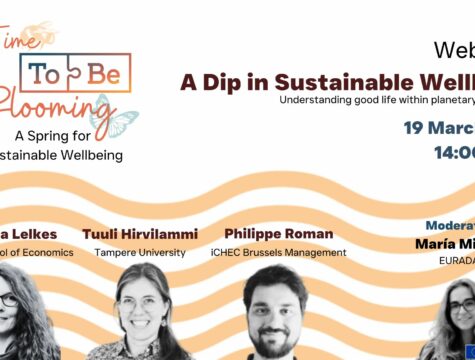The current climate crisis has led European institutions to increasingly direct their policies towards sustainable development and ecological transition. To be effective, such sustainability transition initiatives should be socially equitable. SPES partners from the University of Florence are working in two separate mapping to highlight the relevance of sustainable human development issues in EU policies. In one research paper the focus is on the main recent European publications, laws, and initiatives; while in the other effort concentrates on reviewing existing literature on sustainability transitions using qualitative and quantitative methods to identify the main dimensions and features of a sustainable transition.
Sustainable development is a core principle of the Treaty on European Union and a priority objective for the Eu’s internal and external policies. Whereas Sustainability transition allows to ensure that the ecological transition is fair and inclusive and takes into account the social, economic, and environmental dimensions.
To better understand the European policies on sustainable transition, a special attention has been devoted to existing policies on climate change and their social impact for the transition in Europe, by combining different perspectives, in order to derive policy implications in a multilevel governance framework. The research methods used are both qualitative and quantitative, namely a review of the documentation of the last two decades (2000-2022) in the search engine of the Publications Office of the EU, and a topic modelling technique to examine text data and determine thematic cluster for the set of documents .
In the second case, the Analysis of the Literature through Topic Modelling focuses more on the existing literature on sustainability transitions using qualitative and quantitative methods to identify the main dimensions and features of a sustainable transition. The aim is to provide a guideline for measuring and monitoring sustainability performance at supranational, national and local level.
These two ongoing work have been presented for the first time at the European Sociological Association mid-term conference, held in Florence in September 2023. Both converged in SPES deliverables in particular in SPES REport 2.2 by OsloMet on mapping policy frameworks for sustainability transitions in the European Union and the Global South and in the Working Paper 2.1 The “winds of change”: the SPES framework on sustainable human development.




